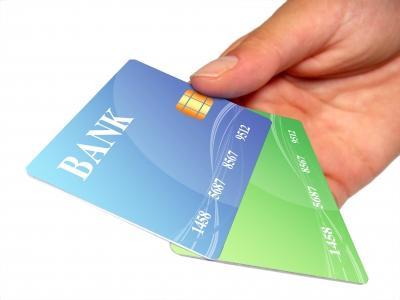
Image courtesy of Salvatore Vuono / FreeDigitalPhotos.net
Whilst credit cards can provide a useful and sometimes even vital means of cash, they are, of course, to be used with care. Credit card debt can spiral out of control very easily if left unchecked and should be monitored very carefully to ensure that interest and fees do not accrue on a monthly basis. It is advised that people with expensive debts such as credit card debt should try to pay it off as quickly as possible and not just pay the minimum amount each month. Doing so can lead to relatively small balances taking a very long time to pay off.
Whilst overpaying is generally seen as a good idea by many analysts, it seems some lenders are reducing the amounts taken in a monthly direct debit to compensate for this. For example, if your minimum payment was at 200, but you overpaid by 50, your next monthly direct debit would be set at 150, thus negating the effect of the overpayment in the previous month. In doing so, the amount paid off your total debt would be the same as if you’d just cleared the minimum each month, with interest accruing at the same rate.
Not noticing the reduction in payments to compensate could be a very costly mistake, especially if you are attempting to clear a debt prior to the expiry of any cheap introductory rate or balance transfer.
How to avoid making this mistake
It is not always possible to clear a credit card debt at the end of every month, especially as monthly household costs seem to be spiralling and wages are standing still. Whenever possible, you should clear the absolute maximum you can afford, to keep the level of credit card debt manageable.
Paying off your credit card debt by standing order rather than direct debit will help you to retain control over the levels of payment made. Rather than paying an amount specified by your lender each month, your payment is defined by you at the bank. Whether you choose to overpay by 50, 100 or even more, as you set the level of the payment, your lender has absolutely no influence or say over what happens.
Other credit card pitfalls avoided
The reduction in subsequent payments following an overpayment is one of the many pitfalls associated with running a credit card. Whilst there is not space here to cover them all, here are some more ways to make the best of your cards.
If you have a 0% deal that requires only the minimum amount to be cleared from the balance each month, it is wise to keep aside funds in a savings account to use to pay off the debt as soon as the 0% period expires. This way, the credit card debt can be cleared before interest begins to accrue.
Using credit cards to purchase holiday money or money from a cash machine is to be avoided whenever possible. Cash advance fees are usually added on in transactions such as these, which are absolutely avoidable if you just use the card for regular purchases. Similarly, check any terms and conditions over use of a credit card abroad to see what the fees are.
